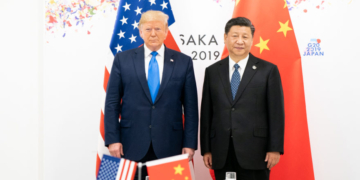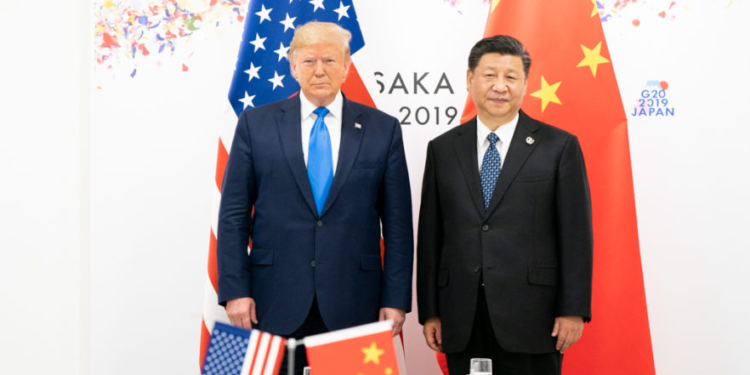The Trump administration on Tuesday introduced a new round of export controls in an effort to further stifle China’s access to U.S. technology.
The Bureau of Industry and Security (BIS) announced that it was adding 80 companies — dozens of which are Chinese — to a trade blacklist, citing national security concerns. The move aims to restrict the Chinese Communist Party’s (CCP) ability to acquire and develop ultra fast, or “exascale” supercomputers as well as quantum technologies to be used in military applications.
The BIS is also aiming to hinder China’s ability to develop hypersonic weapons, according to the statement.
“American technology should never be used against the American people,” Under Secretary of Commerce for Industry and Security Jeffrey Kessler said in a statement shared with the Daily Caller News Foundation. “BIS is sending a clear, resounding message that the Trump administration will work tirelessly to safeguard our national security by preventing U.S. technologies and goods from being misused for high performance computing, hypersonic missiles, military aircraft training, and UAVs that threaten our national security. The Entity List is one of many powerful tools at our disposal to identify and cut off foreign adversaries seeking to exploit American technology for malign purposes.”
Notably, China has largely dominated the global technology sector in recent years, including by investing heavily in artificial intelligence (AI) development. Concerns over China posing a massive threat to U.S. national security have been mounting in recent years, especially amid an increasing number of reports of the country stealing intellectual property from America.
“They [the Trump administration] have indicated a desire to try to seek better relations with Beijing, yet China is not going to desist in their effort to topple the U.S. as the world’s leading power,” Brandon Weichert, senior national security editor at The National Interest, told the DCNF. “A key element of this is acquiring the means to develop high-end semiconductors and other high-tech systems indigenously. By further constraining exports to China, Trump could stunt China’s long march toward toppling U.S. tech dominance.”
“Yet, it’s important to remember that playing keep away is only half the game,” Weichert added. “If that is your only strategy, then a competitor like China will inevitably adapt and overcome whatever controls imposed. We need to pair playing keep away with out-innovating the Chinese. That’s the key. And we’ve yet to fully embrace this part of the equation.”
China’s Foreign Ministry Spokesperson Guo Jiakun condemned the BIS’ new export controls at a routine news briefing Wednesday, claiming that the move was “typical hegemonism and a serious violation of international law and the basic norms governing international relations.”
“Under the strong leadership of President Donald Trump, the Commerce Department is taking decisive action to protect America,” Secretary of Commerce Howard Lutnick wrote in a Tuesday press release. “We will not allow adversaries to exploit American technology to bolster their own militaries and threaten American lives.”
“We are committed to using every tool at the Department’s disposal to ensure our most advanced technologies stay out of the hands of those who seek to harm Americans,” Lutnick added. “At the same time, we will continue to drive American innovation, ensuring that our nation’s economic strength remains unparalleled.”
Trump has notably been moving to reduce America’s dependence on trade with foreign countries as part of his “America First” agenda. The president announced in February that he would double existing 10% tariffs on Chinese imports to 20% beginning on March 4, an escalation of the trade battle with China that began in his first term.
Beijing has retaliated against Trump’s recent tariffs with its own countermeasures, including introducing new tariffs on a variety of American goods.
“By adding more Chinese firms to a growing list of sanctioned Chinese companies in the U.S., the Trump administration is ensuring that we prevent the CCP’s tentacles from reaching into the U.S.,” Weichert told the DCNF. “Remember, many Chinese firms are either state-owned outright or they are staffed by people approved and loyal to the CCP. They enter our country under the guise of doing business but instead are here to conduct industrial espionage. The more we can restrain their access and complicate their mission here, the better. That can only be done via the imposition of export controls.”
All content created by the Daily Caller News Foundation, an independent and nonpartisan newswire service, is available without charge to any legitimate news publisher that can provide a large audience. All republished articles must include our logo, our reporter’s byline and their DCNF affiliation. For any questions about our guidelines or partnering with us, please contact [email protected].



























 Continue with Google
Continue with Google